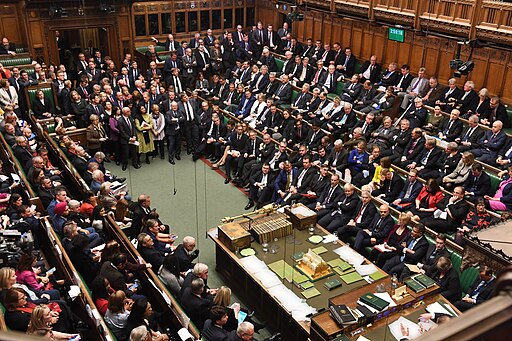
Boris Johnson, the United Kingdom’s scandal-saddled premier, is finally stepping down as leader of the Conservative Party — which, as British politics are structured, means he’s also stepping down as prime minister.
In conjunction with America’s recent annual July 4th celebration of independence from the British monarchy as declared in 1776, it seems worth noting that our former rulers seem to have long outdone us when it comes to claims of “representative democracy.”
For one thing, the British get more democratic representation than Americans. A LOT more.
Their House of Commons, the equivalent of our House of Representatives, numbers 650 for a population of 68 million, or roughly one MP for every 10,500 citizens. Our “people’s house” numbers 435 for a population of 330 million, or roughly one US Representative for every 750,000 citizens.
Their House of Lords — an even rougher equivalent to our Senate — boasts 767 members to our 100.
What’s more, while Americans are saddled with our political “leaders” for fixed terms (two years for the House, six for the Senate, four for the presidency), barring extreme measures such as impeachment, a prime minister can be sacked and replaced by the majority (or majority coalition) party any time that party loses confidence in him or her, and “snap” elections for the House of Commons can be called at, seemingly, the drop of a hat.
And, finally, the United Kingdom actually turns to “direct democracy” on some of the biggest questions. Case in point: The national referendum on “Brexit” under which the UK left the European Union. The US offers no such mechanism for “direct democracy” at the national level.
One effect (or at least characteristic) of the British system is that the Commons includes representative from no fewer than 11 parties (plus several “independents” and Sinn Fein, which wins seats but abstains from taking them), while the US is bogged down in a supposedly two-party system that really amounts to one party of two warring factions.
While I’m no big fan of government in general, and while democracy as such certainly has its flaws, the British way of doing things is both by far more representative, and notably closer to the Declaration of Independence’s dictum that “whenever any Form of Government becomes destructive of these ends, it is the Right of the People to alter or to abolish it, and to institute new Government,” than the American system.
The comparative difficulty of replacing our rulers causes otherwise short-term turmoils to drag on for years instead of getting settled. That sometimes produces gridlock (a good thing, in my opinion), but more often just allows the ruling party to continue down paths that the majority of Americans don’t support.
What can be done about it? Well, amending the US Constitution to make America democracy “more representative” is quite difficult (as amending the Constitution for any reason should be).
On the other hand, if enough states amended their constitutions to create their own UK-style parliamentary systems, the idea might catch on. Hardly perfection (that would be panarchy), but perhaps a good start.
Thomas L. Knapp (Twitter: @thomaslknapp) is director and senior news analyst at the William Lloyd Garrison Center for Libertarian Advocacy Journalism (thegarrisoncenter.org). He lives and works in north central Florida.
PUBLICATION/CITATION HISTORY
